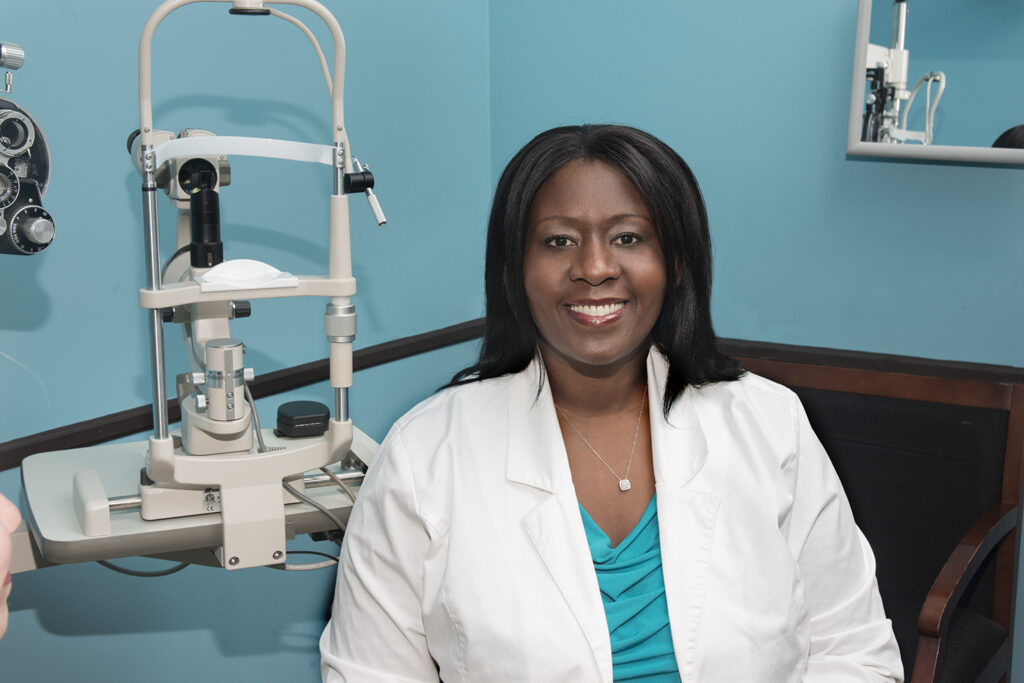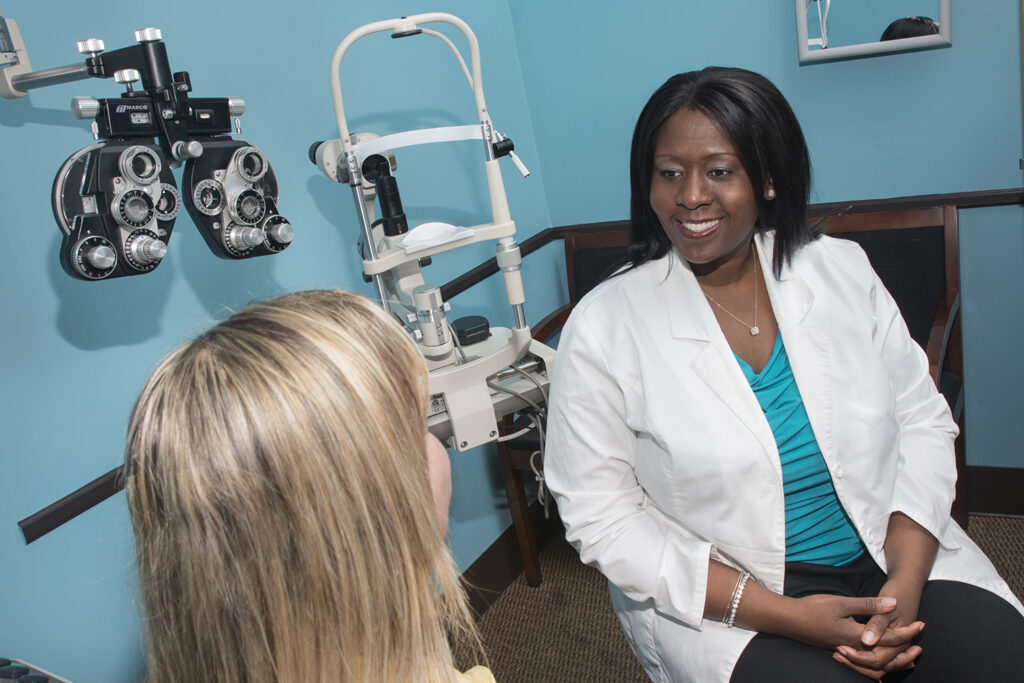Myopia Management Month

Safeguarding Your Vision for a Brighter Future
August is Myopia Management Month, a dedicated time to raise awareness about myopia, commonly known as nearsightedness. As the prevalence of myopia increases globally, especially among children, it’s crucial to understand how to manage and potentially slow its progression. For women optometrists and their patients, this month is an opportunity to emphasize the importance of proactive myopia management. Let’s explore what myopia is, why managing it is essential, and effective strategies for controlling its progression.
Understanding Myopia
Myopia is a refractive error where distant objects appear blurry while close objects can be seen clearly. It occurs when the eyeball is too long or the cornea is too curved, causing light to focus in front of the retina instead of on it. Myopia is commonly diagnosed in childhood and often progresses until the late teens or early twenties.
Inspirational Example: Consider the story of Emma, a 10-year-old who struggled in school because she couldn’t see the board clearly. Her myopia went undiagnosed until a comprehensive eye exam revealed the issue. With corrective lenses and a tailored myopia management plan, Emma’s academic performance and confidence improved significantly. Emma’s experience underscores the importance of early detection and intervention.
The Importance of Myopia Management
Preventing High Myopia: High myopia, typically defined as a prescription of -6.00 diopters or greater, significantly increases the risk of serious eye conditions such as retinal detachment, glaucoma, and myopic maculopathy. Managing myopia early can help prevent these complications.
Enhancing Quality of Life: Unmanaged myopia can affect daily activities, academic performance, and overall quality of life. By controlling its progression, individuals can enjoy clearer vision and a more active lifestyle.
Psychological Insight: Dr. Carol Dweck’s concept of a growth mindset can be applied here. Encouraging children and their parents to view myopia management as a proactive and positive approach rather than a limitation can foster a healthier and more optimistic outlook.
Effective Myopia Management Strategies
1. Regular Eye Exams: Comprehensive eye exams are crucial for early detection and monitoring of myopia. Regular check-ups allow for timely adjustments in management strategies.
2. Optical Interventions:
- Atropine Eye Drops: Low-dose atropine eye drops have been shown to slow the progression of myopia in children.
- Multifocal Contact Lenses: These lenses provide different levels of focus, helping to control myopia progression.
- Orthokeratology (Ortho-K) Lenses: These specially designed contact lenses are worn overnight to temporarily reshape the cornea and reduce myopia during the day.
3. Lifestyle Modifications:
- Increased Outdoor Time: Studies have shown that spending more time outdoors can reduce the risk of developing myopia and slow its progression.
- Digital Device Use: Limiting screen time and ensuring proper ergonomics while using digital devices can help reduce eye strain and myopia progression.
4. Vision Therapy: Vision therapy exercises can help improve eye coordination and focusing abilities, which can be beneficial for managing myopia.
Inspirational Example: Take the case of Lucas, a teenager who spent most of his time indoors playing video games. His myopia progressed rapidly until his optometrist recommended increasing his outdoor activities and implementing a myopia management plan with multifocal contact lenses. Over time, Lucas’s myopia progression slowed, and he discovered new hobbies outside, improving both his vision and overall well-being.
The Role of Women Optometrists in Myopia Management
Women optometrists play a pivotal role in managing myopia and educating patients and their families. Your expertise and compassionate care can make a significant difference in the lives of those affected by myopia.
Educational Outreach: Host workshops and informational sessions for parents and educators to raise awareness about myopia and its management. Utilize social media and community events to spread the word about the importance of regular eye exams and proactive management strategies.
Personalized Care: Provide personalized myopia management plans tailored to each patient’s needs. Discuss the benefits and potential outcomes of different management options, empowering patients and their families to make informed decisions.
Building Trust: Develop strong relationships with your patients and their families. Trust and open communication are essential for successful myopia management and long-term eye health.
Conclusion
Myopia Management Month is a crucial time to emphasize the importance of proactive myopia management in safeguarding vision and improving quality of life. By understanding myopia and implementing effective management strategies, we can help slow its progression and prevent serious eye conditions.
For women optometrists, this month is an opportunity to lead by example, educate your communities, and advocate for comprehensive eye care. Let’s use Myopia Management Month to inspire action, promote eye health, and ensure a brighter, clearer future for everyone. Schedule a comprehensive eye exam today and explore myopia management options to protect your vision for a lifetime.





